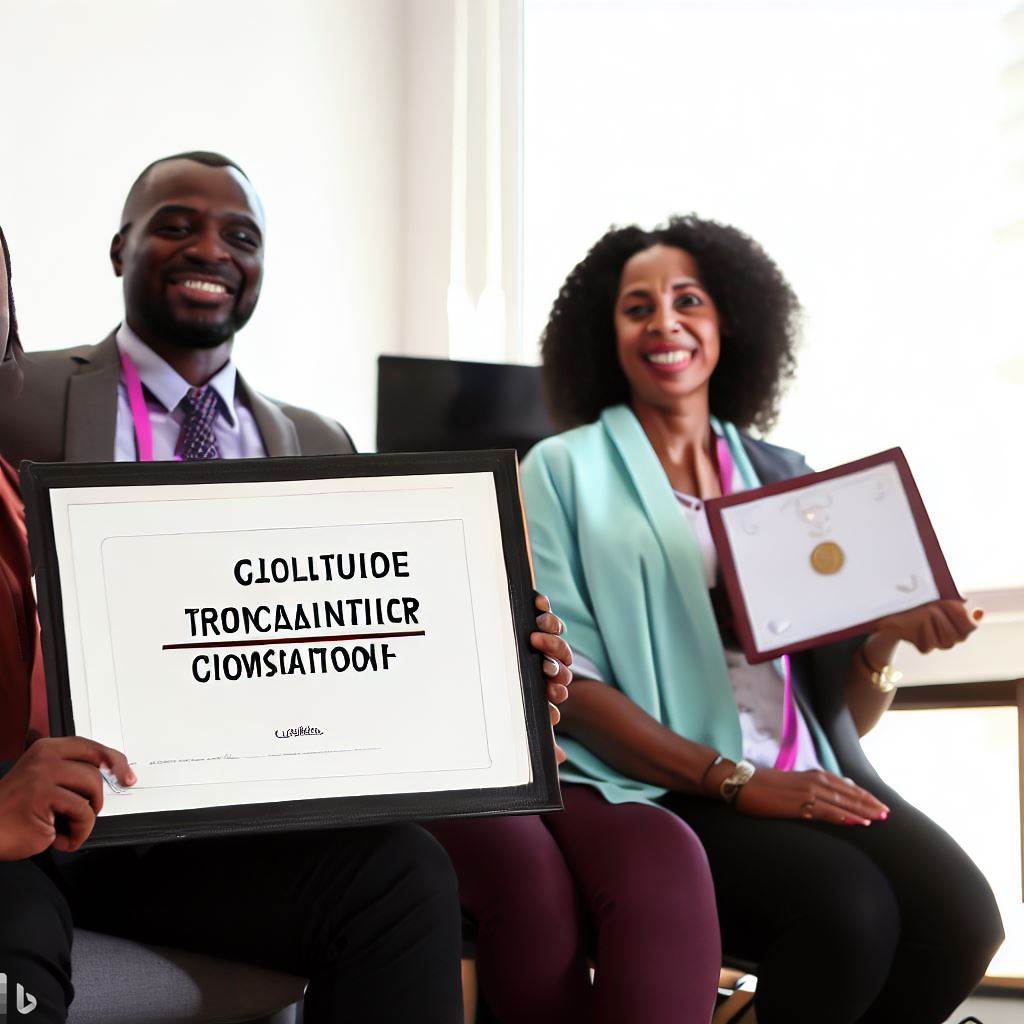Introduction
A. Culturally Sensitive Counseling in Nigeria
Culturally sensitive counseling recognizes Nigeria’s diverse ethnic, religious, and linguistic backgrounds.
B. Counseling Landscape in Nigeria
- Nigeria boasts 250 ethnic groups and over 500 languages.
- Varied cultural beliefs impact mental health and well-being.
- Western counseling methods don’t always align with indigenous values.
C. Importance of Culturally Sensitive Counseling
- Respectful Approach: Acknowledging cultural differences builds trust between counselors and clients.
- Effective Communication: Understanding local norms enhances communication, aiding accurate diagnosis and treatment.
- Overcoming Stigma: Tailored counseling diminishes stigma around seeking help.
- Positive Outcomes: Culturally aligned strategies lead to better therapeutic results.
- Preserving Traditions: Counseling that integrates traditions safeguards cultural heritage.
- Social Harmony: Cultural awareness in counseling contributes to social harmony and cohesion.
In Nigeria, culturally sensitive counseling isn’t just beneficial; it’s essential for promoting mental well-being.
Understanding Culturally Sensitive Counseling
- Definition of culturally sensitive counseling: Culturally sensitive counseling is an approach that takes into account the cultural background and experiences of clients.
- Significance of cultural competence in counseling: Cultural competence is crucial because it ensures counselors understand and respect diverse cultural perspectives.
- Importance of incorporating cultural values, beliefs, and practices into counseling approaches: Incorporating cultural elements fosters trust, promotes effective communication, and increases treatment outcomes.
A. Definition of culturally sensitive counseling
Culturally sensitive counseling is a fundamental concept in providing effective mental health support in Nigeria.
As a diverse nation with over 250 ethnic groups, it is essential for counselors to understand and respect the unique cultural backgrounds of their clients.
B. Significance of cultural competence in counseling
Cultural competence plays a significant role in counseling as it enables professionals to navigate differences and build rapport.
By understanding the cultural nuances of clients, counselors can create an inclusive therapeutic environment where clients feel valued and understood.
This awareness helps to eliminate biases and preconceived notions.
C. Importance of incorporating cultural values, beliefs, and practices into counseling approaches
Incorporating cultural values, beliefs, and practices within counseling approaches is crucial for several reasons. Firstly, it promotes trust and alliance between the counselor and client.
When clients witness their cultural identities being acknowledged and respected, they are more likely to trust the counselor and engage in the therapeutic process.
Moreover, integrating cultural elements into counseling approaches allows counselors to understand the context and worldview of their clients.
This understanding is vital for effective communication and accurate interpretation of clients’ needs and concerns.
It also helps counselors provide appropriate assessments and interventions that align with clients’ cultural backgrounds.
Cultural values and beliefs influence individuals’ perceptions of mental health and help-seeking behaviors.
Incorporating these values within counseling approaches encourages clients to explore their emotions and challenges within the framework of their cultural norms.
This approach reduces stigma and increases clients’ willingness to seek and engage in mental health services.
Additionally, cultural competence in counseling acknowledges that mental health is shaped by social, economic, and political factors.
By considering these factors, counselors can address the systemic barriers clients may face and provide culturally appropriate support.
This holistic approach contributes to clients’ overall well-being and increases the likelihood of positive treatment outcomes.
Cultural sensitivity in counseling is not a one-size-fits-all approach. It requires ongoing self-reflection, learning, and collaboration with clients.
Counselors must be open to understanding different cultural perspectives, engaging in cultural humility, and continuously educating themselves on the diverse cultures they serve.
Basically, culturally sensitive counseling is of utmost importance in Nigeria. It involves defining cultural competence, recognizing its significance, and incorporating cultural values into counseling approaches.
This approach fosters trust, effective communication, and improved treatment outcomes.
By embracing cultural diversity, counselors can provide inclusive and effective mental health support to their clients in Nigeria.
Read: What To Expect From Your Psychiatrist Visit in Nigeria
Cultural Diversity in Nigeria
A. The rich cultural diversity and ethnic groups in Nigeria
Nigeria, often referred to as the “Giant of Africa,” boasts a rich and diverse cultural heritage. It is home to over 250 ethnic groups, each with its own distinct languages, religions, and traditional practices.
The ethnic groups in Nigeria are incredibly diverse, contributing to the country’s vibrant cultural landscape. Some of the major ethnic groups include the Hausa-Fulani, Yoruba, Igbo, and Ijaw.
Each group has its own unique customs, traditions, and worldviews.
B. The differences in language, religion, and traditional practices across ethnic groups
Language is a significant aspect of Nigeria’s cultural diversity. With over 500 languages spoken across the country, communication can often be a challenge.
A counselor must acknowledge and understand the linguistic differences to effectively communicate and provide support to clients from different ethnic groups.
Religion also plays a crucial role in Nigeria’s cultural diversity. The major religions in the country are Islam, Christianity, and traditional African religions.
Each ethnic group has its dominant religion, which influences their values, beliefs, and practices. Counselors must be sensitive to these religious differences when providing guidance and counseling services.
Traditional practices vary widely among ethnic groups in Nigeria. These practices are deeply rooted in the history, customs, and beliefs of each group.
They encompass rituals, ceremonies, and social norms. Counselors need to be aware of these traditions and respect them while providing culturally sensitive counseling.
C. The need for counselors to have a profound understanding of these cultural diversities
The importance of counselors having a profound understanding of Nigeria’s cultural diversities cannot be overstated.
The ability to navigate and appreciate the nuances of different ethnic groups can significantly impact the effectiveness of counseling interventions.
Counselors who are knowledgeable about cultural practices, traditions, and beliefs can tailor their counseling approaches to suit the specific needs and values of their clients.
This understanding allows counselors to build trust, establish rapport, and create a safe space for clients to express themselves.
Moreover, culturally sensitive counseling promotes inclusivity and avoids potential harm that may arise from a lack of understanding.
It eliminates biases and stereotypes that may impede the counseling process, ensuring that clients receive the support they need without feeling misunderstood or judged.
In conclusion, Nigeria’s cultural diversity is a vital aspect of the country’s identity. To provide effective counseling in Nigeria, counselors must embrace and value this diversity.
By appreciating and understanding the various cultural nuances, language differences, religious beliefs, and traditional practices, counselors can ensure that their services are sensitive, relevant, and respectful.
Ultimately, culturally sensitive counseling fosters positive client outcomes and strengthens the mental health support system in Nigeria.
Read: Nigeria’s Fight Against Mental Illness: A Tale of Psychiatrist
Challenges of Traditional Counseling Approaches in Nigeria
Limitations of Implementing Traditional Counseling Approaches without Cultural Sensitivity
- Lack of understanding of cultural norms and values can hinder effective communication.
- Inability to address specific issues and concerns that are influenced by cultural factors.
- Dismissal or misinterpretation of clients’ experiences due to cultural differences.
- Failure to establish trust and rapport with clients from diverse cultural backgrounds.
- Inaccurate assessment and diagnosis of problems without considering cultural factors.
Negative Impact on Clients from Different Cultural Backgrounds
- Feelings of alienation and exclusion due to a lack of cultural understanding from the counselor.
- Misinterpretation or underestimation of the client’s struggles and challenges.
- Loss of faith in the counseling process and reluctance to seek help in the future.
- Experiencing cultural bias and judgment, leading to feelings of shame and stigma.
- Increased psychological distress and worsening of mental health symptoms.
Cultural Insensitivity’s Contribution to Miscommunication and Conflict within Counseling Sessions
- Language barriers and misinterpretation of non-verbal cues can lead to misunderstandings.
- Disregard for cultural practices and beliefs may cause resentment and resistance from clients.
- Frustration and anger from clients when their cultural identities are not acknowledged or validated.
- Loss of trust and breakdown of the therapeutic relationship.
- Inability to provide effective interventions that align with the client’s cultural values and needs.
In essence, the challenges of traditional counseling approaches without cultural sensitivity are significant in Nigeria.
Lack of cultural awareness can hinder effective communication, lead to negative impacts on clients, and contribute to miscommunication and conflict within counseling sessions.
It is crucial for counselors to be culturally sensitive and responsive in their practices to provide the best support and guidance to clients from diverse cultural backgrounds.
Read: Telepsychiatry in Nigeria: Prospects and Challenges

Benefits of Culturally Sensitive Counseling in Nigeria
Improved Therapeutic Outcomes when Counseling is Tailored to Cultural Needs
- By understanding and incorporating cultural beliefs, values, and norms, counseling becomes more effective.
- When clients feel that their cultural background is respected, they are more likely to engage in the therapeutic process.
- Tailoring counseling to cultural needs can enhance treatment adherence and reduce premature terminations.
- Addressing cultural factors can help counselors develop appropriate treatment plans and interventions.
- When counseling is culturally sensitive, clients feel understood and validated, leading to improved mental health outcomes.
Importance of Building Trust and Rapport with Clients through Cultural Sensitivity
- Establishing trust and rapport is essential for successful counseling relationships.
- Cultural sensitivity fosters trust by demonstrating respect for the client’s cultural background and experiences.
- When clients perceive counselors as culturally aware, they are more likely to open up and share their concerns.
- Building trust allows clients to feel safe, which leads to a deeper exploration of their thoughts and emotions.
- Cultural sensitivity helps counselors avoid misunderstandings and misinterpretations, enhancing the therapeutic alliance.
Emphasize How Culturally Sensitive Counseling Promotes Client Empowerment and Self-Identity
- Culturally sensitive counseling acknowledges and supports clients’ individuality and unique cultural identities.
- It encourages clients to embrace their cultural heritage and values, fostering a sense of self-acceptance.
- By incorporating cultural strengths and resources, counseling promotes clients’ empowerment and resilience.
- Cultural sensitivity helps clients develop a positive self-identity and a sense of belonging.
- Through culturally tailored interventions, clients can explore their cultural identities and narratives, fostering personal growth.
In general, culturally sensitive counseling in Nigeria brings numerous benefits to both clients and counselors. By tailoring counseling to cultural needs, therapeutic outcomes improve significantly.
This approach also enhances the trust and rapport between clients and counselors, leading to more effective therapy.
Additionally, culturally sensitive counseling promotes client empowerment and self-identity, encouraging individuals to embrace their cultural heritage.
Overall, cultural sensitivity is a vital aspect of counseling in Nigeria, promoting a more inclusive and effective mental health system.
Read: Impact of Technology on Psychiatry Practice in Nigeria
Strategies for Implementing Culturally Sensitive Counseling
Implementing culturally sensitive counseling in Nigeria requires a comprehensive approach that integrates training, awareness, and collaboration.
A. Provide training and education for counselors on cultural competence
To begin, counselors should receive specialized training and education on cultural competence.
This includes learning about the diverse cultural backgrounds in Nigeria, understanding cultural norms and values, and developing effective communication strategies.
B. Encourage counselors to develop self-awareness and cultural sensitivity
It is also essential for counselors to cultivate self-awareness and cultural sensitivity.
This involves reflecting on their own biases, assumptions, and prejudices, and recognizing how these may influence their interactions with clients from different cultural backgrounds.
By developing cultural humility, counselors can create a safe and inclusive space for clients to express their concerns and experiences.
C. Promote the use of culturally appropriate assessment tools and techniques
Utilizing culturally appropriate assessment tools and techniques is another crucial strategy.
Standardized assessments may not capture the unique challenges and strengths of individuals from diverse cultural backgrounds.
By adopting culturally sensitive assessments, counselors can gather relevant information that takes into account the cultural context of their clients, resulting in more accurate diagnoses and personalized treatment plans.
D. The importance of building partnerships with traditional healers and community leaders
Finally, building partnerships with traditional healers and community leaders plays a significant role in fostering culturally sensitive counseling.
Traditional healers are respected figures in Nigerian communities and often provide mental health support. By collaborating with them, counselors can better understand and integrate traditional healing practices into their therapeutic approaches.
Additionally, engaging community leaders helps create a supportive network that promotes mental health awareness and reduces stigma surrounding seeking counseling.
In short, implementing culturally sensitive counseling in Nigeria requires a multi-faceted approach.
By providing training, promoting self-awareness, utilizing appropriate assessments, and building partnerships, counselors can deliver more effective and culturally relevant mental health services to clients.
It is crucial to recognize and address the unique cultural needs and perspectives of individuals seeking counseling in Nigeria, ultimately improving mental health outcomes for all.
Read: Top Institutions to Study Phlebotomy in Nigeria
Overcoming Challenges in Culturally Sensitive Counseling
A. The need to address personal biases and stereotypes among counselors
- Recognize the impact of personal biases on the counseling process.
- Encourage self-reflection and self-awareness to identify and challenge biases.
- Provide training and workshops to help counselors understand their own cultural influences.
- Foster an inclusive and non-judgmental environment for open discussions of biases.
- Implement regular supervision and feedback to address and reframe biases.
B. The challenges of balancing cultural sensitivity with professional ethical standards
- Recognize that cultural sensitivity does not justify compromising ethical guidelines.
- Understand the importance of adhering to professional ethical standards in counseling.
- Strive to find a balance between cultural considerations and ethical responsibilities.
- Seek consultation and collaboration with other professionals when facing ethical dilemmas.
- Continuously educate counselors on ethical standards related to cultural sensitivity.
C. Explore strategies for ongoing professional development in cultural competence
- Provide regular training on cultural competence and diversity to counselors.
- Encourage counselors to engage in self-directed learning and research on diverse cultures.
- Promote participation in cultural immersion programs and cross-cultural experiences.
- Establish partnerships with community organizations to gain cultural insights and knowledge.
- Encourage counselors to engage in cultural competence supervision and mentoring.
Overcoming challenges in culturally sensitive counseling is crucial for effective and ethical practice.
Addressing personal biases and stereotypes among counselors is the first step towards fostering inclusivity and cultural sensitivity.
By recognizing the impact of biases, encouraging self-reflection, and providing training workshops, counselors can develop a deeper understanding of their own cultural influences.
Furthermore, finding a balance between cultural sensitivity and professional ethical standards is essential.
While cultural considerations are important, they should never compromise ethical guidelines.
By adhering to ethical standards and seeking consultation when facing ethical dilemmas, counselors can navigate the complexities of culturally sensitive counseling.
Lastly, ongoing professional development in cultural competence is necessary to provide culturally sensitive counseling.
Regular training on cultural competence and diversity, self-directed learning, and cultural immersion programs can enhance counselors’ understanding of diverse cultures.
Building partnerships with community organizations and engaging in cultural competence supervision and mentoring also contribute to continuous growth in cultural competence.
In a nutshell, overcoming challenges in culturally sensitive counseling requires addressing personal biases, balancing cultural sensitivity with ethical standards, and prioritizing ongoing professional development.
By doing so, counselors in Nigeria can enhance their effectiveness and provide culturally responsive counseling services to diverse clients.
Conclusion
Sensitively incorporating culture into counseling is crucial in Nigeria for several reasons.
By understanding and respecting cultural norms, counselors can encourage trust, healing, and growth in their clients.
It is important to further research and advocate for the promotion of culturally sensitive counseling in Nigeria to ensure the well-being of individuals and communities.




